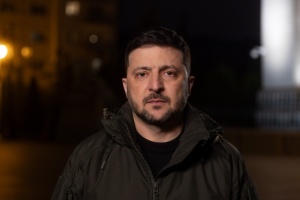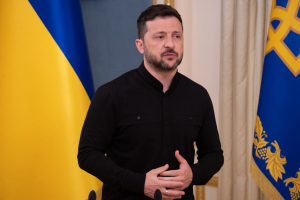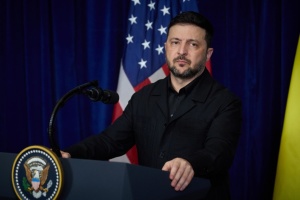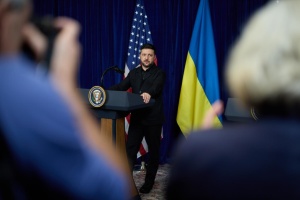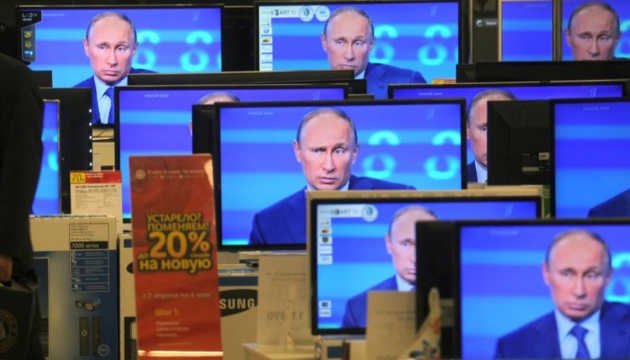
EU defense against information attacks of Russia on Europe
"Freedom of speech was introduced by liberals to break sovereignty of nation-states, as it allows foreign content to penetrate the information space of these states and replace their ideology," believes Igor Ashmanov – who is a defender of the policy of "information attacks" of Russia on the West. "Such attacks are an element of Russia's informational sovereignty, they are not forbidden by international law, and by the means of these attacks the military intervention in foreign state can be justified; besides, Russia is already in a state of war," says Ashmanov, one of the most influential persons in the field of "information" in Russia.
Disinformation campaign vs information attacks
One and the same content of the information originating in the Kremlin and ending up in front of European audiences with the aim to "distort, distract, dismay" is being called an "information attack" in Russia and "disinformation" in the West. Yet the perception of the influence of Russia on Europe and an appropriate response to it depends on the correct usage of the term. The term "disinformation campaign" is soft, it does not necessarily imply the intention to harm, the Kremlin is just a "campaigner," therefore the response should not be aggressive, definitely not from the side of the authorities. The use of "information attack," on the contrary, implies force, the Kremlin is an "aggressor," and therefore the response should be undertaken on a higher level – the level of the national and European authorities.
The Kremlin's information attacks on Europe
Elements of Russian disinformation in the media space of democratic countries reached its audience on the wings of freedom of speech, and it is being officially justified by Russian opinion leaders and policy shapers.
The "campaign" constitutes the interference in the sovereignty of European nations with the aim to break their national security and shake European unity. In this regard the means to fight disinformation is a matter of European-wide defense as it is not about "disinformation," but about "information attacks."
EU defense against information attacks
The EU established a department for strategic communication within EEAS – the EUvsDisinfo Task Force. The most visible result of the work of the EUvsDisinfo is the list with examples of how disinformation comes to the European media space.
Yet as long as the term "disinformation" is the key term that sets the direction of the response of the EU, such response will not be efficient, and "freedom of speech" will be the instrument of Russia's information attacks on Europe.
The recent "situation" with two mistakes on the list in relation to the Dutch articles (in fact, three articles were withdrawn but one is not to be considered to be a mistake as it contains Russian disinformation) out of 4,000 cases of the EUvsDisinfo lead to the requirement by the Dutch journalists and politicians to shut down this important department, claiming that the EU should not decide what is true news and what is false news. The fact that the articles in question were addressed in 2015-2016 when the department was newly set up and has "professionalized" since then, the fact that the mistakes constitute 0.05% of all addressed disinformation articles, and the fact that the list is not the product of the EU but of the civil society and other journalists to whom the EU gives a platform to share the findings, those three facts are being loudly ignored. The Kremlin applauds such victory of the European "freedom of speech" where the solution to a mistake is the elimination of the subject that makes the mistake, especially when this subject is set to defend European values. Despite the opinion that the European Union has too much power, it is thanks to this power that the nation-states cannot deliberately limit their citizens in the expression of their freedoms and abuse their rights. In 2018, European interdependence is the sole efficient guaranty to peace and human rights on the European continent, also in the Netherlands.
Yet the perception by the Dutch journalists that the EU interfered with the free press was an unintended result of the communication strategy that focused on "debunking disinformation." The goal to challenge the Russian "disinformation campaign" was specifically set by the European Council in March 2015. Such "challenge" focuses on the disinformation within the EU. How should the EU challenge the disinformation within the EU without giving the journalists the feeling that the information flow is being watched?
So is the list a censorship attempt of the EU?
Firstly, there is no legal ground for the censorship within the EEAS. Secondly, the intention is to prevent European society from shifting from the digital information war into a real-world conflict. And thirdly, the EEAS has not imposed any restrictive measures towards the media outlets in question and has no right to do so.
Need for the EU Task Force
Nonetheless, as a result of the discussion on the matter in the Dutch media space, the journalists claimed that they want to be left on their own in the fight with Russian disinformation. They even pushed the Dutch national authorities to raise a request on the level of the EU to shut down the Task Force. This means that in addition to having a great instrument for shaping public opinion the media can also shape a policy, inter alia, the foreign policy of their state and even of the European Union.
Yet it has to be stressed, that the journalists have the mandate from the people to collect and deliver information, but they do not have the mandate to be the sole ones to defend democracy, national security, and European unity.
Organized and executed by the foreign state through its "media agents" the (dis)information attacks cannot be resisted just by the journalists or just by the citizens on their own, nor can the state officials deal with it without the support of the people. It is clear that in the information war there are no proper strategies for the defense of democracy. The defense motives should not justify censorship or limitations to freedom of speech by any governmental institutions. At the same time, whoever wants to fight the information war with democratic means easily gets trapped in the manipulation, failing both - defense and freedom.
In this regard, the European Council should choose to use the term "information attacks" over the term "disinformation campaign." The task of the EEAS should first of all be to analyze and monitor the informational approach of the Kremlin in the complex of its doctrines, concepts, policy papers, practical measures etc. The (dis)information attacks should be seen in the context of establishing Russian "informational sovereignty." Further, the EEAS should call a roundtable of journalists, civil society, and state officials with the aim of introducing structural cooperation mechanisms in order to create a "production chain" of response to the "information attacks."
In their turn, journalists should consider providing background information and alternative views in each article on sensitive topics. Thus, giving one point of view in the article based on the press conference and avoiding giving another in the times of the information attacks sends the message to "the aggressor" that the more press conferences he gives the bigger platform he will gain for its one-sided messages in the foreign media. Saying that newspapers also contain articles with opposite views in justification of publishing the Kremlin's clichés is a dangerous approach to preserving "freedom of speech."
Marta Barandiy, Ph.D., LL.M. Eur.

